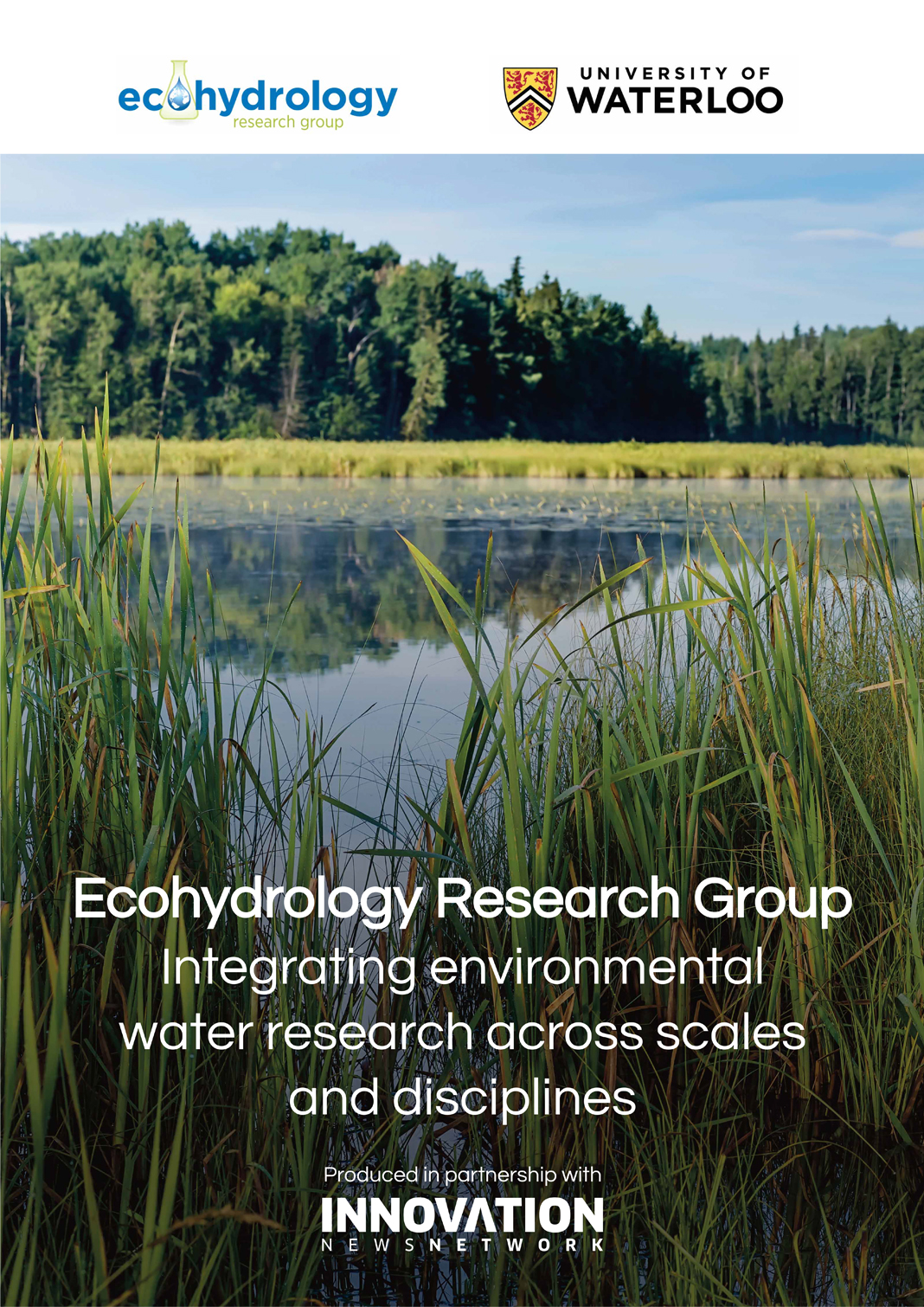Ecohydrology Research Group’s new eBook explores its ongoing multidisciplinary environmental water research activities.
Water is a valuable natural resource, and access to clean fresh water is necessary for human and animal health, as well as agricultural, industrial and domestic uses. On top of this, the quantity and quality of water is essential to the functioning of natural ecosystems such as rivers, wetlands, lakes and coastal areas.
This eBook, produced in partnership with Innovation News Network, explores the ongoing multidisciplinary environmental water research activities of the Ecohydrology Research Group (ERG) at the University of Waterloo, and features articles on:
- Biogeochemical processes in soil and how they influence soil health and water quality.
- Experiments and techniques used to determine how soil organic matter influences the fate of organic contaminants and nutrients in the soil environment.
- How peat soils are connected to climate change.
- Biochemical activity in the environment, and the microbially mediated transformations of toxic trace metals.
- Induced Polarisation, and how this technique is used to reveal biogeochemical activity in the subsurface.
- Developing smart water quality sensor technologies using synthetic DNA sequences.
- Advanced biogeochemical modelling of environmental processes that can be integrated and scaled up to real-world systems.
- The connection between nitrogen, phosphorus, and water quality issues due to excess nutrients.
- The role of damming in environmental change.
About Ecohydrology Research Group
The Ecohydrology Research Group at the University of Waterloo was founded in 2011 by Dr Philippe Van Cappellen with the aim of carrying out research on the use of water resources, and contributing to understanding of the connections between the evolving societal and environmental drivers of water quality and the resulting impacts on ecosystem services, aquatic ecosystems and environmental health.
The multidisciplinary research team includes biogeochemists, hydrologists, ecologists, environmental chemists, and microbiologists and combines laboratory experiments, experiments and research from the international field, and mathematical modelling.
For more information, visit: https://uwaterloo.ca/ecohydrology/


